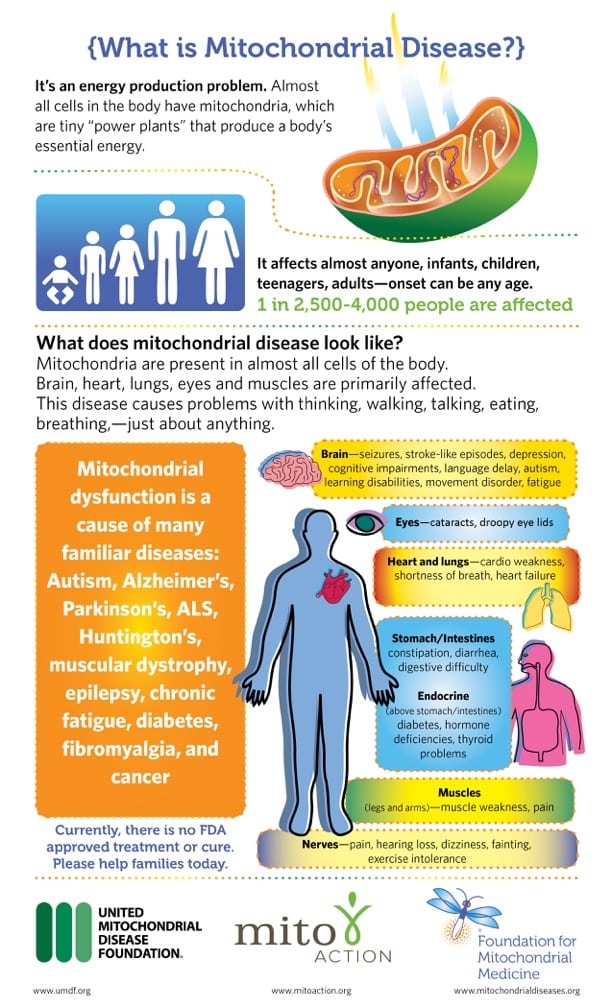
- What is Mitochondrial Disease?
- Symptoms of Mitochondrial Disease
- How is it diagnosed?
- Treatment and Prognosis
- Mitochondrial disease:
- Is chronic and genetic; it can be inherited in many different ways
- Occurs when the mitochondria of the cell fail to produce enough energy for cell or organ function
- Can present in many different forms and presented different from person to person
Common symptoms are:
- Poor growth
- Loss of muscle coordination, muscle weakness
- Neurological problems, seizures
- Autism, autistic spectrum, autistic-like features
- Visual and/or hearing problems
- Developmental delays, learning disabilities
- Heart, liver or kidney disease
- Gastrointestinal disorders, severe constipation
- Diabetes
- Increased risk of infection
- Thyroid and/or adrenal dysfunction
- Autonomic dysfunction
- Neuropsychological changes characterized by confusion, disorientation, and memory loss.
- There is no reliable and consistent means of diagnosis.
- Diagnosis can be made by one of the few physicians who specialize in mitochondrial disease.
- Diagnosis can be made by blood DNA testing and/or muscle biopsy but neither of these tests is completely reliable.
There is no cure for Mitochondrial Disease. The primary goal is to improve symptoms and slow progression. Prognosis varies greatly from person to person. Some individuals affected may have minimal symptoms and live a relatively normal life. Others, however, may be severely impacted.
This information came from MitoAction.org
You can read this and more at their website.

0 Comments